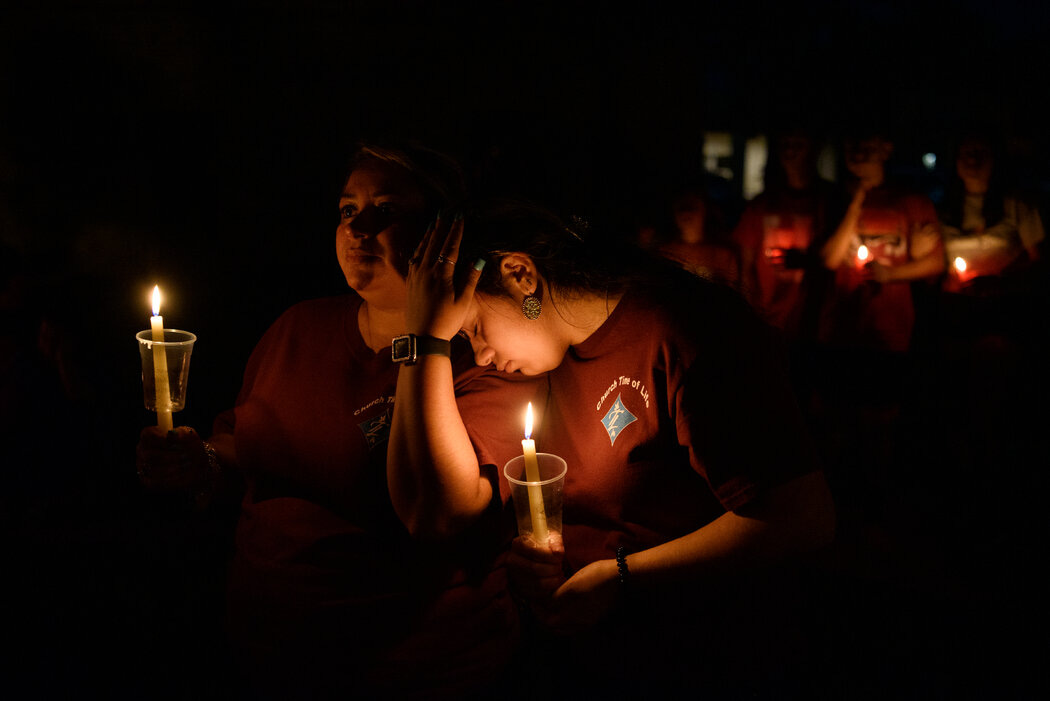Why Schools?
Making schools nicer might not prevent tragedy in the future, but it wouldn't hurt
My heart is broken for the families of the youngest victims of gun violence this week in Uvalde, Texas. Too many beautiful little people were taken away too soon. When faced with unthinkable, senseless tragedy, the only hope is make changes that will prevent this from happening in the future. Like Andrew Rotherham, I support gun control, but not turning schools into fortresses. I also think we should look at ways to improve school culture.
Parkland. Sandy Hook. Uvalde. Why do crazed gunmen keep hitting schools? Schools are a poor choice, if the goal of the crazed gunman is simply to kill as many people as possible in the shortest amount of time. Schools have locked doors and security. Classrooms only have about 20 kids in each room. Not to be macabre, but if body count was the real goal, a smart crazed gunman would chose a subway station or a shopping mall.
These angry young men choose schools to inflict their carnage, because schools were places where they felt victimized, marginalized, shunned, and alienated. Not winning awards in the classroom or on the ballfield, these killers were shuttered away in the worse part of schools, without friends at a cafeteria table, without hope for a proper job in the future. Without strong families or love from the larger community, these kids have nothing to counterbalance those the negative feelings at school. While the vast majority of students endure these slights in silence, a handful of unhinged individuals want revenge.
We should, of course, limit access to guns, but no change will happen without reforming a toxic school culture that breeds resentment and anger. By making schools nicer and by enlisting the support of the entire community, we would also help millions of kids who feel like they don’t belong.
It’s important to remember that school shootings are statistically rare. Your kid is more likely to die in a car crash than in a school shooting. Yet, these tragedies are frequent enough to force all us to take a look at problems in society and try to make some changes. While I am a hundred percent in favor of limiting access to weaponry in our country, I don’t actually think it will bring about any meaningful changes. There are too many guns already available. Also, parts of our country really, really like guns, so politically it will be hard to make changes.
Though I do not know any kids with extreme behavioral issues, I do know plenty of marginalized kids. I am a parent of a special ed kid, after all. I have learned that if your children can’t read properly or add a column of numbers by fifth grade, schools write them off. Schools provide the least possible education for those children, and count the days until they can hand them a diploma and kick them out the door. Last year, I wrote about my son’s marginalization during his last weeks of high school.
Administrators don’t even pretend to like the special ed kids and their parents. These kids do not bring the school rewards. They don’t take AP classes or get the winning touchdown. Their poor test scores actually lower a school’s rankings compared to other schools, which then lowers the property value in town. Services, like counseling and reading tutoring, are expensive and help rarely comes without the employment of a pricy attorney.
Schools show their disinterest in kids like mine by putting them — literally — in windowless basements, giving those kids the least qualified teachers, and refusing to provide them with appropriate after-school activities, where they could make friends and feel acceptance. The entire school culture reinforces that winner-take-all mentality. If you are not an athlete or an honors student, high school can be a very tough place.
There’s no place outside of school that can provide relief. No place in the community that embraces the oddballs, the weirdos, the different. There are few supportive workplaces. Our church didn’t offer special ed CCD, so my son never made his Confirmation. Community colleges are underfunded. Localities do not provide services to help marginalized young people.
There are a whole lot of people who aren’t part of the SAT/acceptance letter/dorm room culture. If you’re not college bound, there’s little help getting to some alternative happy place. Statistically, alienated youth, who spend their days on the sofa playing video games, are not going to shoot up an elementary school, but it’s still sad.
What should we do? Schools should be given incentives to provide support, education, and acceptance to ALL of the students in the school building. We need social workers in the schools, as well as in the communities, that can connect families with resources for their children. Every student should be known by at least one adult in the school building. We need to expand school programs that connect students with job opportunities and with training at the local community colleges. We need beds in hospitals or specialized schools for troubled young people, where they aren’t thrown into an hardcore adult population of pedophiles and drug addicts.
We can limit guns, increase security, and enact any of the dozen other reforms that are being proposed right now, but we also must reduce the misery within the school walls and broaden our efforts to support kids and families. I have no idea if these efforts will really stop the next shooting, but reducing misery is simply the right thing to do.
Picture: New York Times

